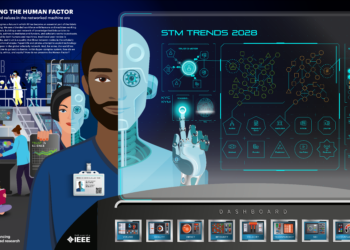In 2006, when Google paid $1.65 billion in stock for YouTube, there was some doubt that the site would ever pay back the investment. But Google had a long-term vision, which has clearly paid off. There are many YouTube publishers making more than $100,000 per year, based on estimates (Google doesn’t allow actual numbers to be released). And that’s after the money is split with Google.
Now, YouTube is celebrating a remarkable 2011 by hosting a video of its top videos — where else, but on YouTube.
Some of the data and lists YouTube has shared:
there were more than 1,000,000,000,000 (one trillion) playbacks on YouTube this year (yep, count ‘em, 12 zeroes). That’s about 140 views for every person on the earth.
Aside from these numbers, the remarkable cultural effect of YouTube should also be appreciated. See for yourself — how many of these do you recognize?
Happy Friday. Happy Holidays. Merry Christmas.
Discussion
14 Thoughts on "YouTube — Long-term Strategy Pays Off With Amazing Stats for 2011"
It’s interesting you post this just as YouTube has made controversial changes, moving the site away from its unique strengths and toward what some call a serendipity free online version of commercial television. It’s such a juggernaut though, so it will be interesting to see whether something that seems so established can push through such a paradigm shift and whether it can retain the same level of relevance.
What’s fascinating to me about YouTube is how younger people (“kids today”) use it as their primary source of music. No radio, no iTunes, not even illegal downloads. If you want to hear a song, you just listen/watch it on YouTube. To me this is a greater threat to the music industry than piracy; not a generation that doesn’t pay for the music they own, but a generation that has no interest in owning music at all.
You sound like a middle-aged curmudgeon in the ’80s bemoaning MTV. I remember putting MTV on the television as my “radio” as a teen, and listening to “Video Killed the Radio Star.” (Hans Zimmer, keyboardist of The Buggles, who wrote the song, is now a famous composer, scoring movies like “Inception” and “The Dark Knight” among others.)
Radio could conceivably have killed purchased music long ago — free, easy to access, etc. Transistor radios? Definitely should have killed the 45 rpm record. Oddly, just the opposite occurred. Attenuating people to music makes them want to own it, pure and simple.
My experience with YouTube and music is that it’s having much the same effect. Recently, my charge on a trip to London was to score as much music, video, and paraphernalia for a new British band for my daughter, who got to know their music via YouTube, had downloaded their songs that way, etc. However, her desire for the fully packaged music AND for all the add-ons was so strong that my luggage bulged with things I brought back. Without YouTube, there’s no way this happens. Same with TV performances, which drive purchases. We’ve easily spent $15 just the past two months buying X-Factor songs off iTunes. Why would we do that? We could just as easily listen to them by saving our DVR recordings and playing them back. Oh, that’s right — not at the gym, in the car, or in the order we want.
I think the track record around broadcast music (radio, MTV, YouTube) and proprietary music (record/CD collections, playlists, albums, iTunes) is fairly clear — the first drives the second through attenuation, secures it through convenience, and flourishes pretty well overall. Even when people own the $0.99 songs, they’ll still foolishly go see the bands in concert. Repeatedly. And then buy the DVDs of the concert.
I think the record companies know how to use YouTube.
You kids, get off of my lawn!
The key to what you’re saying though, is that you buy the music because you don’t have universal ubiquitous access to YouTube (can’t listen at the gym, in the car). If your kids could dial it up in all those circumstances, would you still buy it?
And the difference between radio/MTV and YouTube is the selectivity offered. You turn on the radio and you hear what they’ve decided to play. You go to YouTube and you decide what you want to play.
I think the record companies know how to use YouTube for now. What it eventually means will be interesting. This may just be another case of the “digital native” myth, and that behaviors will change to the current norm as the group ages. But there’s an interesting set of numbers here:
http://www.theprovince.com/technology/Facebook+Twitter+oust+Myspace+music+fans+experts/4162893/story.html
While 16-24 year-olds prefer to rip and burn CDs without paying for them, twelve-to-fifteen year-olds are the digital natives of today and tomorrow, influential market survey group Forrester’s vice president of research Mark Mulligan told the music industry’s annual MIDEM get-together in Cannes.
Though a mere 15 percent of this young group download peer-to-peer music and just 12 percent buy tracks, 56 percent listen to music on their mobiles and 53 percent watch videos on the Internet.
Compared to? It’s never been anywhere near 100% ever. Are these percentages higher or lower than past eras? There’s nothing in the article or in what you say to help answer that question. So we’re back at square one, living once more with the digital native myth.
How can you compare past generations listening to music in a way that didn’t exist yet? You know how many 12-15 year olds listened to music on YouTube ten years ago? 0%. From 0% to 56% of a demographic in six years. That’s either astonishing growth or a very popular fad.
As stated, it’s unclear what this means for the future of selling music. They could all just switch over to the paradigm of owning music (legally or illegally obtained), it could mean that as broadband connections become ubiquitous, they’ll expect continuous access to everything (meaning things like Spotify will dominate if they’re willing to pay for it).
Or are you now playing the role of the luddite who assumes that everything is going to remain exactly as it is today? You are a man of many contradictions Kent.
I’m just saying these are raw data, not comparative data. You can’t draw conclusions from it. How many teens were copying tapes on their two-deck boom boxes in the ’80s? How many just watched MTV or listened to the radio? You’re confusing technology with mode — free, passive listening or watching/listening is the same at base, no matter the technological route to it.
Did 56% of 12-15-year-olds listen to music on MTV 25 years ago? That’s what I’m asking for comparative information on.
Even if listening modes shift, all it means is that commercial models follow. Instead of radio station licensing pennies, now there are YouTube advertising dimes. Might actually be better for the music companies.
And I’m just saying that one should ignore raw data at one’s own peril.
And there’s a big difference between free and passive listening and free and directed listening. MTV operated on the same principle as radio, the music companies paid promotional fees to get airplay of the songs they were looking to sell. A situation where the listener is making the choices on what’s played requires a different business model. As you note, this may mean advertising replaces song sales as the primary way of profiting from music.
Or it may just be an odd blip. I’m stating that it’s an interesting phenomenon, that it is indeed different, as it provides the benefits of individual control that ownership offers without requiring a purchase. If I were in the music industry, it’s something to which I’d be paying a great deal of attention.
I see it’s a real intense debate here so I just want to tell you my opinion. While YouTube allows visitors to watch clips containing audio, that doesn’t necessary mean they will make people buy less music, but on the contrary they will buy even more. Why do you think artists are partnering with YouTube? Well…they want YouTube to promote their releases. On their channels you will see a fancy design with a link to their iTunes store…mostly real fans buy every time.
People have always had ways to pirate music or listen in other ways, but there were always people who bought music. Why? As a token of appreciation for the artist who struggled to create those beautiful songs. Among the fans is a real honor to have the original disc. Also many do not bear the sound quality on YouTube which makes them go on iTunes.
“Always” is a long time. There have not always been people who bought music, as recorded and sold music is a recent (20th century) phenomenon. The rise of this technology significantly altered the business models for musicians. The internet is proving to be another disruptive technology, again altering the way they earn a living. Interestingly enough, it’s in some ways returning to the pre-recording days, where you make a living by performing live or being sponsored by a patron.
I do understand that YouTube currently serves as a marketing tool to drive music sales. What I am questioning is how long that will last, and for a younger generation, whether YouTube has itself become the end product, rather than the advertisement for something else. If you have constant high bandwidth access to all the music you want on YouTube, what is the motivation for paying for a download? YouTube playlists have even replaced the “mixed tapes” of my youth.
For a generation raised on mp3, I don’t think sound quality is much of an issue. Nor is there status in owning the original disc, given that 2012 will see digital download sales overtake physical media sales for the first time (in terms of total revenue, though in terms of volume, it appears the lower-priced downloads may have already won out).
As noted above, the YouTube-centric behavior may just be a phase and children may move on to different behaviors as they age (much as email is considered “something old people do” when one is a teenager, but something one starts doing once one becomes an adult and gets a job). Or it may signal the devaluing of music ownership. Time will tell.
Yes David, I agree when you say that the young internet users believe that YouTube is the best source of free music. Still I’m pretty sure they are not able to decide what content will be uploaded on YouTube because…let’s face it, Google is more and more interested in filtering the piracy and illegal music uploads.
Currently in my country I don’t have access to services like Vevo and Google Music, but I really believe that these represent the future “marketing tools” for music labels and soon all music will be there…the pricing is on Google’s hands so…like you said! Time will tell!
I’m not comfortable with a business that rode to success by deliberately exploiting copyrighted content that it allowed users to upload without permission. Free riders like this are not, in my book, worthy of emulation. That said, I have found YouTube to be the best way to discover music I should have known about a long time ago, such as the 30+ year old British rock group Level 42: http://www.youtube.com/watch?v=sPR7mq9YWZA&feature=related. Some groups you have to see to believe, and this is one. I bookmark a lot of videos like this, but i also buy CDs to play in the car and on a sound system that is higher quality than my computer’s speakers (though i use small Bose external plug-in speakers).
David and Kent, you speak as if the impact of all internet sources of music (not just You Tube) is unknown. Anyone who is a regular reader of the business press will tell you that the first decade of the 21st century was a disaster for the record industry. Their sales and profits have dropped dramatically. Though the record labels may have learned to use You Tube to drive sales, I wouldn’t bet on that changing the long term trend.
The ongoing impact of new technologies is far from known. One can’t possibly believe that things have stabilized and the problems are in the rear view mirror. If anything, the pace of change is likely to accelerate. Given that Google has recently announced their own music service, is it really likely that YouTube’s relationship to music will never change?



